
Business
16:29, 19-Aug-2017
US launches formal probe over China intellectual property practices
By CGTN's Han Jie
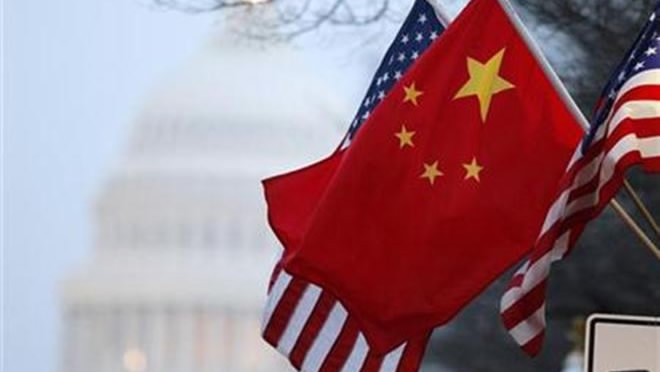
US Trade Representative Robert Lighthizer on Friday formally initiated an investigation into China's intellectual property (IP) practices under Section 301 of the Trade Act of 1974.
It came after US President Donald Trump's decision on the direct measure against Chinese trade practices Monday.
"A decision to trigger Section 301 today is problematic because it would provide additional fuel to the already simmering argument that the Trump administration is undoing the American commitment to rules-based trade and decades of work to establish international cooperation," said Chad Bown, a senior fellow at the Washington DC-based Peterson Institute for International Economics.
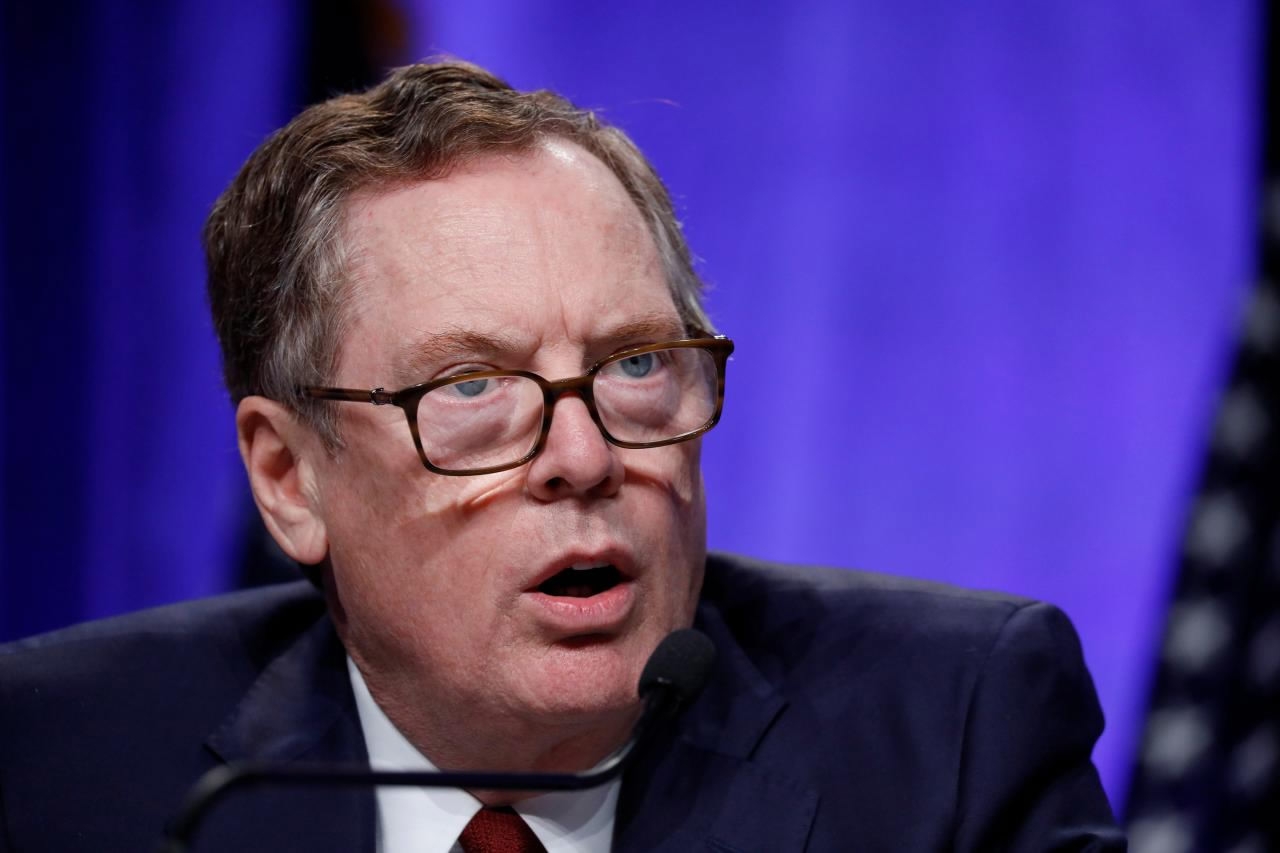
The United States Trade Representative Robert Lighthizer /Reuters Photo
The United States Trade Representative Robert Lighthizer /Reuters Photo
Damaging for both parties
From 2001 to 2016, US imports from China increased by a factor of 3.5, while US exports to China increased by nearly a factor of six.
As the largest market for the US products, China is willing to find a proper way to solve trade problems with the US by mutual respect and mutual benefit.
"The Chinese government attaches great importance to the protection of intellectual property rights and has made an effort more evident to all," Chen Fengying, a researcher on the global economy with the China Institute of Contemporary International Relations told CGTN.
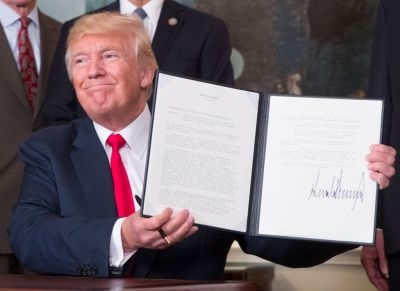
President Donald Trump on Monday authorized an inquiry into China's alleged theft of intellectual property in the first direct trade measure by his administration against Beijing, but one that is unlikely to prompt near-term change. /Reuters Photo
President Donald Trump on Monday authorized an inquiry into China's alleged theft of intellectual property in the first direct trade measure by his administration against Beijing, but one that is unlikely to prompt near-term change. /Reuters Photo
Does China lack IP protection?
China has long been treated as a developing country with little to no protection on IP by the US. The US government claims that Chinese companies have been pillaging the intellectual property of American companies, and the alleged IP-theft costs American up to 600 billion US dollars a year.
However, along with relevant IP protection laws and regulations, China has always attached the importance of the IP protection through cracking down on violations and raising public awareness in the IP field.
Why now?
In the wake of the US-DPRK crisis, "Trump’s administration is under tremendous pressure on all sides, domestically and internationally," the founder and managing director of Red Pagoda Resources, Andy Mok told CGTN.
With the increasingly interwoven interests between China and the United States, no one will benefit from this friction between the two countries. In terms of Trump's trade probe on China, Charles Liu, founder of HAO Capital, told CGTN, "it's totally against international rules and regulations".
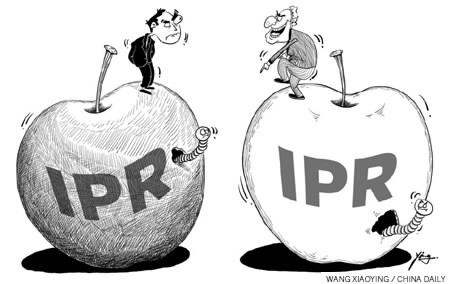
China Daily Cartoon
China Daily Cartoon
As Trump is not delivering any of his promises during his campaign, he "needs to throw some bones to his base," Charles said. "Regarding China-US trade, the supply chain and value chains in these two economies are so integrated, he cannot do anything without having someone being hurt in the US, not just in China," he added.
Why China sanctions?
With China's recent manufacturing achievements, which includes the maiden flight of China's first domestically produced single-aisle passenger jet, the C919, and the successful launch of both the Long March 5 carrier rocket and the world's first quantum satellite, Chen believes the US formally initiated an investigation into the alleged theft of China's IP because of "China's technology threat".
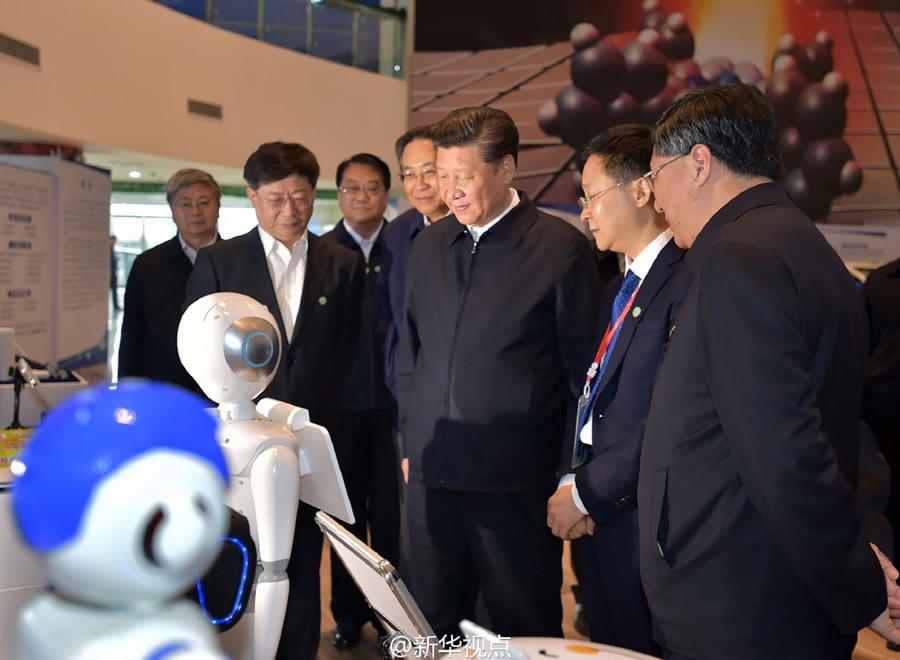
President Xi Jinping visits the Institute of Advanced Technology in University of Science and Technology of China in Hefei, east China's Anhui Province, on April 26, 2016. /Xinhua Photo
President Xi Jinping visits the Institute of Advanced Technology in University of Science and Technology of China in Hefei, east China's Anhui Province, on April 26, 2016. /Xinhua Photo
"American concerns that the strong technology power China currently has will become a significant threat to its own development and interests. It is why Trump administration uses Section 301 to limit China's development to achieve his promise of protecting American's own interests, especially in IP filed", Chen said.
Michael Froman, former USTR under the Obama administration, has warned that the US could face retaliation by other trading partners if the Trump administration moves away from resolving trade disputes through the WTO and instead starts taking unilateral actions.
"We urge the two governments to work together to address these concerns," Myron Brilliant, executive vice president of US Chamber of Commerce, said in a statement, "the US-China relationship is a critical one, not only for the two countries but also for the world."

SITEMAP
Copyright © 2018 CGTN. Beijing ICP prepared NO.16065310-3
Copyright © 2018 CGTN. Beijing ICP prepared NO.16065310-3